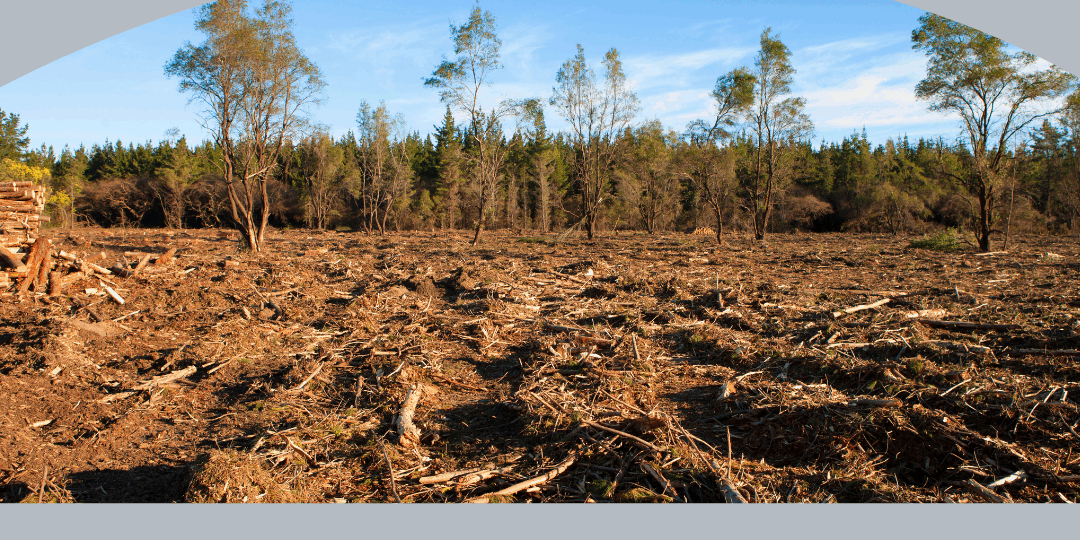The Securitization of Climate Change:
A Rising Global Security Challenge
Hannah Gyamfua Mensah
IIHS Regional Contributor
Accra, Ghana
Climate change has evolved from merely an environmental or developmental issue to being widely perceived as a severe security threat – an existential risk demanding urgent and extraordinary measures to prevent instability, conflict, and displacement. This article examines why climate change has emerged as a global security concern, the implications for governance and international relations, and the potential risks and advantages of a security-focused approach.
The Copenhagen School of Security Studies conceptualizes “securitization” as a process where an issue is reframed from a regular political matter into an urgent threat to the survival and core interests of the state or the international community (Copenhagen School, 2010). Climate change has steadily undergone this transformation, and seen as a “threat multiplier” exacerbating human security (Facini, 2023), with nexus to population displacement, resource scarcity and sociopolitical tensions (Lucke et al., 2014).
Climate change is driving more people to flee their homes and seek refuge elsewhere, which poses a major security threat. Recent examples include the devastating 2022 Pakistan floods that affected over 33 million people and the droughts in the Horn of Africa from 2019-2021 that displaced over 4 million people. According to the 2021 Groundswell Report, climate change could forcibly relocate as many as 216 million people within their own countries by 2050, with 143 million in Sub-Saharan Africa, South Asia, and Latin America alone. These large-scale population movements can overburden host communities and heighten political and social tensions, presenting significant global security and governance challenges (Bronen et al., 2018).
Climate change has intensified competition over vital resources like water, food, and arable land, exacerbating existing disputes and tensions that may escalate into violence. For instance, declining water availability has heightened conflicts between countries sharing trans-boundary rivers like the Nile and Tigris-Euphrates (Mohammad, 2020). Droughts also led to clashes between pastoralists and farmers in West Africa, such as the Sahel drought that intensified competition for scarce resources in countries like Burkina Faso, Mali, and Niger (Lyammouri, 2021). Similarly, the UNDP Conflict Analysis in Lake Chad Report (2020-2021), stipulates how drought sparked conflicts over dwindling water, disrupting livelihoods and potentially contributing to extremist recruitment. Furthermore, the melting of Arctic ice and water shortages in nuclear-armed nations are geopolitical ramifications of climate change that could heighten international rivalries and the risk of conflict (Malik, 2020; Никулин, 2021).
Framing climate change as a security issue has had some benefits. It has increased the urgency for action, leading to more climate adaptation and preparedness efforts. The climate-security agenda has also encouraged international cooperation on resource management and conflict prevention. For instance, the annual Conference of Parties meetings under the United Nations Framework Convention on Climate Change have provided a forum for international cooperation on addressing climate change and its security implications, as the COP29 Summit highlighted discussions on the connections between climate change, migration, and conflict, emphasizing the need for coordinated global action.
However, the securitization of climate change raises important concerns, as it has substantial implications for achieving key Sustainable Development Goals related to human security, such as Goals 2, 5, 10, 13, 16, and 17. Hartmann (2014), argues that the securitization of climate change has fostered a “neo-Malthusian” discourse, prioritizing military and political responses over addressing the underlying socioeconomic factors. Some developed countries as stipulated by GLOBAL CLIMATE WALL (2023), are increasingly framing climate-driven migration as a security concern, responding with restrictive immigration policies and reinforced border controls. As in the cases of the European Union’s EU Pact on Migration and Asylum to strengthen border security and limit asylum applications, the United States’ Migrant Protection Protocols to return asylum seekers to Mexico. These militarization and exclusionary policies, must be carefully analyzed towards a comprehensive and balanced approach to addressing the climate change challenge. Effectively addressing the security risks of climate change requires a balanced approach that incorporates security considerations without neglecting human rights, development, and environmental justice.
The securitization of climate change is a complex issue that requires a balanced approach of security considerations, human rights, development, and environmental justice. The IIHS firmly believes in this balanced approach and global collaboration to address the nexus of climate change and human security.
References
Aniekwe, C. C. (2020). UNDP CONFLICT ANALYSIS IN THE LAKE CHAD BASIN REPORT.
Bronen, R., Maldonado, J., Marino, E., & Hardison, P. (2018). Climate change and displacement. In Routledge eBooks (p. 252). Informa. https://doi.org/10.4324/9781315163062-12
Copenhagen School. (2010). https://reference.jrank.org/security/Copenhagen_School.html
Facini, A. (2023). Climate Change as a “Threat Multiplier”: History, Uses and Future of the Concept. https://climateandsecurity.org/2023/01/briefer-climate-change-as-a-threat-multiplier-history-uses-and-future-of-the-concept/
GLOBAL CLIMATE WALL. (2023). https://www.tni.org/files/publication-downloads/global-climate-wall-report-tni-web-resolution.pdf
Groundswell Report. (2021). https://www.worldbank.org/en/news/video/2021/09/13/taking-action-on-internal-climate-migration
Hartmann, B. (2014). Converging on Disaster: Climate Security and the Malthusian Anticipatory Regime for Africa. In Geopolitics (Vol. 19, Issue 4, p. 757). Taylor & Francis. https://doi.org/10.1080/14650045.2013.847433
Lucke, F. von, Wellmann, Z., & Diez, T. (2014). What’s at Stake in Securitising Climate Change? Towards a Differentiated Approach. In Geopolitics (Vol. 19, Issue 4, p. 857). Taylor & Francis. https://doi.org/10.1080/14650045.2014.913028
Lyammouri, R. (2021). Central Mali: Armed Community Mobilization in Crisis. https://doi.org/10.37805/cbags2021.4
Malik, A. (2020). Climate Change and Armed Conflict: Pakistan’s Vulnerability in the Coming Water Wars. In SSRN Electronic Journal. RELX Group (Netherlands). https://doi.org/10.2139/ssrn.3831147
Mohammad, R. (2020). Climate Change and International Conflict: How Climate Change’s Impact on the Nile Affects Egypt-Ethiopia Conflict. In Journal of Islamic World and Politics (Vol. 4, Issue 2). https://doi.org/10.18196/jiwp.4254
United Nations. UN Climate Change. November 24, 2024. https://unfccc.int/cop29 (accessed 3 13, 2025). References
UNICEF/Arsalan Butt. (2023). UN continues to support Pakistan flood response. https://news.un.org/en/story/2023/03/1134302
United Nations. (2024). Climate, peace and security: what we need to know. https://www.un.org/en/peaceandsecurity/climate-peace-and-security-what-we-need-know
Никулин, М. А. (2021). The Arctic as a potential space for Great Power Competition. In IOP Conference Series Earth and Environmental Science (Vol. 678, Issue 1, p. 12034). IOP Publishing. https://doi.org/10.1088/1755-1315/678/1/012034
Hannah Gyamfua Mensah is a Migration Analyst with research interests in migration and integration; development; precarious situations and protection, committed to advancing evidence-based policies and inclusive governance.
LinkedIn: http://linkedin.com/in/hannah-gyamfua-mensah-62a78934







